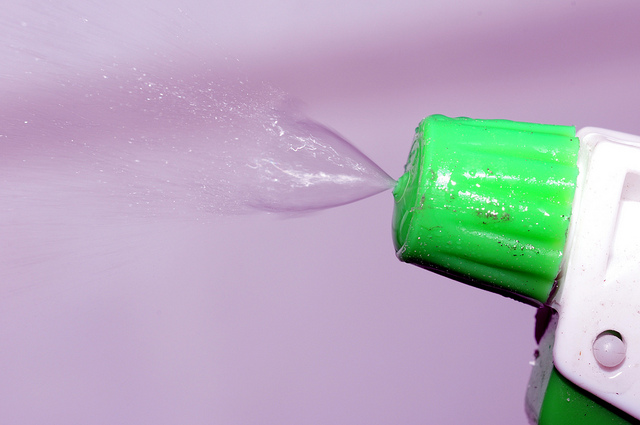
It’s easy to tell summer is on its way—especially in the South where I live.
The birds are singing, the blooms are blooming, and the unholy horde of mosquitoes is readying itself for war. Living in Tennessee in summertime can be a blessing—I never get tired of the lush landscape, the abundant produce from our local farm, and the endless calendar of outdoor events.
But we are also Ground Zero for the annual Battle of the Mosquito. I prefer not to cover my family in DEET or stay indoors the whole season, so I’ve come to embrace the wonder of citronella oil. Citronella is an effective weapon for combating these pests, but there are some ways to use it that are more effective than others.
If you want to combat those blood-suckers with citronella, here are a few battle-tested tips.
1. Planting citronella around your home or patio will do little to protect your castle from mosquitoes. The true mosquito-repellent properties of citronella come from its essential oil. While the plant itself does contain this oil, the amount is tiny compared to a concentrated essential oil. If you insist on planting citronella, try crushing the leaves when you sit outside to release some of the oil, but don’t expect a bite-free miracle.
2. Use it like armor. While citronella candles may do the trick, the area they cover is limited. The best way to use citronella is to wear it. I don’t recommend putting citronella essential oil directly onto your skin because it can cause irritation. It’s best to dilute it before applying. One way to do this is to mix the essential oil with an unscented lotion. Mix one teaspoon of citronella essential oil into eight ounces of unscented lotion for a quick and easy repellent.
However, if putting lotion on while you’re already sweaty and sticky doesn’t sound terribly appealing, you can easily make your own citronella spray—I’ll tell you how at the end of this article.
3. Call in reinforcements. Citronella oil is great. What’s even greater is when you mix it with other bug-battling essential oils or hydrosols. Lemon eucalyptus oil has been shown to be an effective mosquito repellent (and products containing it are even recommended by the CDC), and neem oil, while not the most pleasant-smelling, is another effective mosquito fighter.
Want to ward off other insects? Create a custom essential oil blend for your particular backyard pests. Try adding these oils to your lotion or spray:
>> Ticks: lavender, lemongrass, cedarwood, eucalyptus
>> Chiggers: lavender, lemongrass, sage
>> Flies: peppermint, cedarwood, eucalyptus
Ready to make your own bug spray?
My husband and I own a bath and body company, and our citronella spray is one of our best summer sellers, but you can make your own version at home. It really only takes two ingredients: witch hazel USP and essential oil. I prefer witch hazel USP to distilled water because it contains alcohol, which evaporates quicker. When I’m sweaty, the last thing I want hanging around on my skin is more moisture.
Start with a clean bottle with a spray mister top. It’s good to know exactly how many fluid ounces your bottle holds, because I recommend adding citronella at a rate of 2% to avoid skin irritation. For every 2 ounces of witch hazel, add 25 drops (or ¼ teaspoon) of essential oil.
Be sure to shake the mixture before every application. Because you’re just using witch hazel as a base, the essential oils will separate.
While citronella and other essential oil sprays have been shown to be effective bug repellents, they should be applied and reapplied often for maximum benefit.
~
~
Author: Rachel Mullen
Image: Paul Scott/Flickr
Editor: Callie Rushton


 Share on bsky
Share on bsky




Read 0 comments and reply